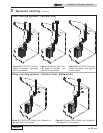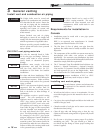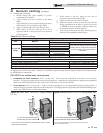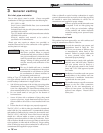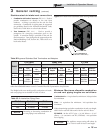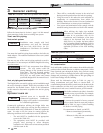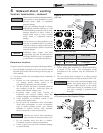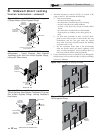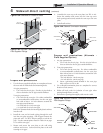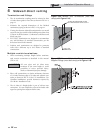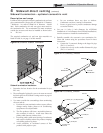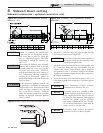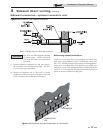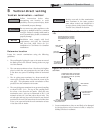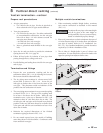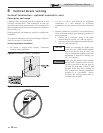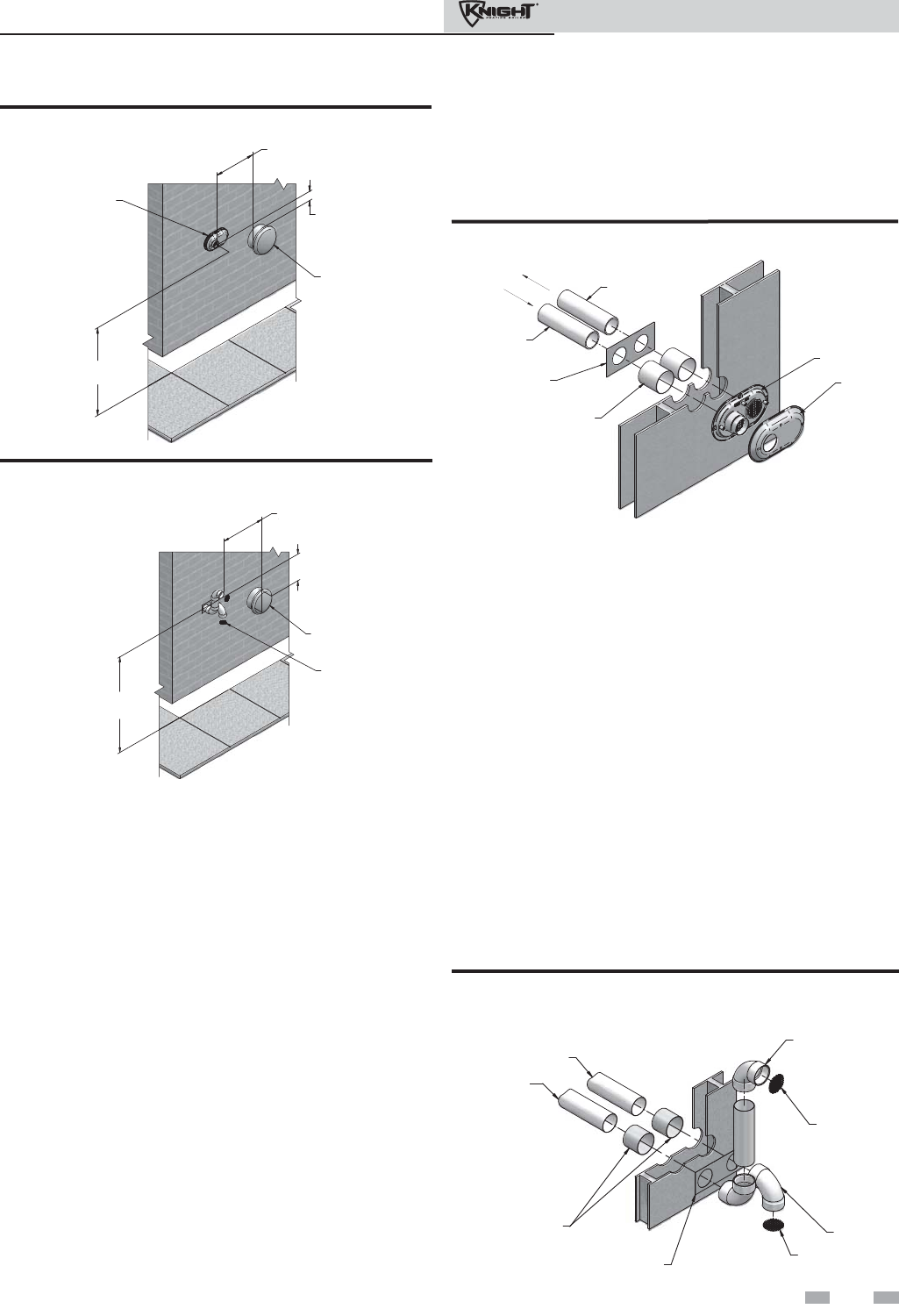
23
Installation & Operation Manual
FORCED AIR
INLET
VENT / AIR
TERMINATION
7' MIN. ABOVE ANY
PUBLIC WALKWAY
IF LESS
THAN 10’
36"
MIN.
Figure 4-3A Clearance to Forced Air Inlets
4 Sidewall direct venting (continued)
Prepare wall penetrations (Alternate -
Field Supplied Option)
1. Air pipe penetration:
a. Cut a hole for the air pipe. Size the air pipe hole as
close as desired to the air pipe outside diameter.
2. Vent pipe penetration:
a. Cut a hole for the vent pipe. For either combustible
or noncombustible construction, size the vent pipe
hole with at least a 1/2 inch clearance around the vent
pipe outer diameter:
• 4½ inch hole for 3 inch vent pipe
• 5½ inch hole for 4 inch vent pipe
b. Insert a galvanized metal thimble in the vent pipe
hole as shown in FIG. 4-4B.
3. Use a sidewall termination plate as a template for correct
location of hole centers.
4. Follow all local codes for isolation of vent pipe when
passing through floors or walls.
5. Seal exterior openings thoroughly with exterior caulk.
VENT PIPING
GALVANIZED
THIMBLE
VENT CAP
AIR PIPING
WALL PLATE
VENT PLATE
Figure 4-4A Sidewall Termination Assembly
AIR PIPING
ELBOW
BIRD SCREEN
ELBOW
BIRD SCREEN
SIDEWALL
TERMINATION PLATE
GALVANIZED
THIMBLE
VENT PIPING
Figure 4-4B Alternate Sidewall Termination Assembly w/
Field Supplied Fittings
Prepare wall penetrations
1. Use the factory supplied wall plate as a template to locate
the vent and air intake holes and mounting holes.
Air pipe penetration:
a. Cut a hole for the air pipe. Size the air pipe hole as
close as desired to the air pipe outside diameter.
Vent pipe penetration:
a. Cut a hole for the vent pipe. For either combustible
or noncombustible construction, size the vent pipe
hole with at least a 1/2 inch clearance around the
vent pipe outer diameter:
• 4½ inch hole for 3 inch vent pipe
• 5½ inch hole for 4 inch vent pipe
Drill 3/16" diameter holes for inserting the plastic anchors
into the wall.
2. Install the vent and air intake piping through the wall
into the vent plate openings. Seal all gaps between the
pipes and wall. Use RTV silicone sealant to seal the air
pipe. Use the cement/primer listed in Table 3A on page
17 to seal the vent pipe.
3. Mount and secure the vent plate to the wall using
stainless steel screws. Seal around the plate to the wall
assuring no air gaps.
IF LESS
THAN 10’
36”
MIN.
FORCED AIR
INLET
BIRD
SCREEN
(TYPICAL)
7’ MIN. ABOVE ANY
PUBLIC WALKWAY
Figure 4-3B Alternate Clearance to Forced Air Inlets w/
Field Supplied Fittings
4. Assemble the vent cap to the vent plate (see FIG. 4-4A).
Insert the stainless steel screws into the vent cap screw
hole openings and securely attach the vent cap to the vent
plate.
5. Seal all wall cavities.



